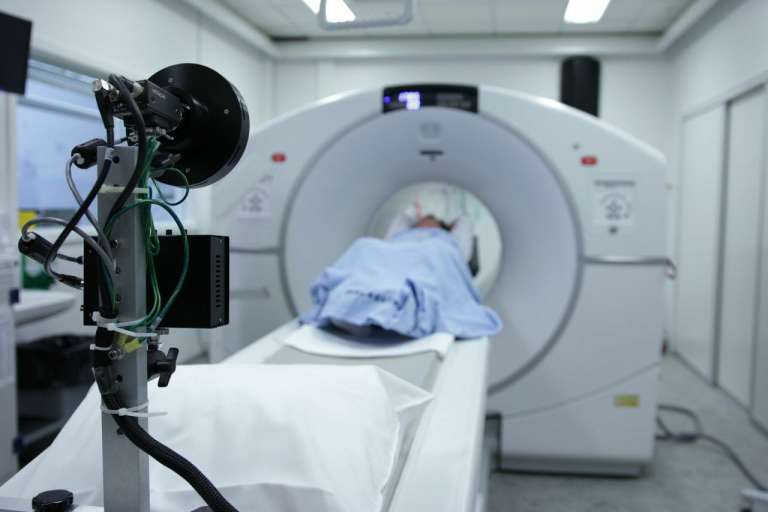The Supreme Court has reviewed the law of consent in Montgomery v Lanarkshire Health Board. It is now easier to make a claim if you were not fullly involved in making decisions about your treatment.
Montgomery v Lanarkshire Health Board
This was an obstetric claim where the delivery was complicated by shoulder dystocia i.e. the baby’s shoulders were not able to pass without intervention. The delay caused the baby to be deprived of oxygen and to develop cerebral palsy.
Mrs Montgomery was not told that her diabetes meant that there was a 9-10% risk of shoulder dystocia occurring; or that this risk could be eliminated if she delivered by c-section.
She claimed that these omissions meant that she was given inadequate information about her options. And if she had been given all of the information, she would have chosen to deliver by c-section.
The claim was denied and defended. They argued that if every diabetic mother was told of the risk, they would all opt for a c-section; and that this was not in their best interests. They also contested that the risk of harm was much lower than 9-10%, since most cases of shoulder dystocia do not lead to injury.
The Law of Consent
The existing law meant that a doctor’s omission to warn of a risk was defensible if other doctors, acting reasonably, would have made the same decision. There were exceptions where the proposed treatment involved a substantial risk of grave adverse consequences, or where the patient had questioned the doctor about a specific risk they faced.
Effectively, subject to these exceptions, it was up to the doctor to decide what information should be given. If other doctors would have made the same decision, a claim based on consent would be likely to fail.
The lower courts applied these principles to Mrs Montgomery’s case. They found, the decision to withhold the risk of shoulder dystocia would have been supported by other doctors, acting reasonably. Her claim was therefore dismissed.
The issues raised were then considered by the Supreme Court.
The Supreme Court’s Analysis of the Law of Consent
The Supreme Court recognised that in recent years there has been an increasing recognition of patients’ ability to understand complex medical information and of their wish to participate in decisions about their treatment.
It noted that this was reflected in the General Medical Council’s Good Medical Practices. The advice is to encourage doctors to give patients the information they need to reach decisions with their doctors.
To reflect these changes in attitudes, the Supreme Court abandoned the traditional approach to determining liability in consent cases. They set out a new approach:
- A patient is entitled to decide which, if any, of the available forms of treatment to undergo.
- The doctor is under a duty to take care to ensure that the patient is aware of all material risks of the recommended treatment and of any alternative treatments.
- A risk is a material risk if a person in the patient’s position would attach significance to the risk.
- The doctor may withhold information if it would be seriously detrimental to the patient’s health, or if the patient requires emergency treatment.
In other words, to avoid a finding of negligence, the doctor must explain why they consider that one of the available treatment options is medically preferable to the others, having taken care to ensure that the patient is aware of the considerations for and against each of them.
The Decision in Montgomery v Lanarkshire Health Board
The Supreme Court applied these principles to Mrs Montgomery’s claim and found that:
- She should have been told of the 9-10% risk of shoulder dystocia; and
- The doctor was not entitled to withhold information on the basis that a c-section would be detrimental.
Reaction to the Decision
The Montgomery decision has provoked much reaction in the legal and medical communities. Some predict a significant increase in claims based on the law of consent.
However, I expect to only see a modest increase in the number of consent claims over the next few years.
I do think that there is the potential to use the Montgomery decision in obstetric cases; where the chance to deliver by c-section was not taken. Outside obstetrics though, I’m not convinced that Montgomery will lead to the significant increase in case numbers that others predict. I say this for two reasons:
- Whilst it is true that Montgomery finally brings to an end the concept of “doctor knows best”, perhaps it simply recognises changes that have already taken place? In other words, it may just bring the law up-to-date with the reality of modern medical practice; rather than sett a new standard.
- For a claim to succeed, the patient must do more than show that the doctor has failed to provide adequate advice and information; the patient must also show that they would have chosen alternative treatment; and further, that the injury they have suffered would have been avoided had they done so. Mrs Montgomery proved this by showing that she would have had a c-section. However, proving this is not straightforward and the courts are well aware that patients’ evidence can be coloured by the benefit of hindsight.
Our Experience
At Pryers, we deal with more than 400 new enquiries a month and we are not seeing any increase in people coming to us with complaints about consent. This is not surprising as the Montgomery decision has received no publicity outside the medical and legal communities.
Nevertheless, as medical negligence practitioners, we must bear this important case in mind when considering all new enquiries as there may be the possibility of bringing a claim based on consent in addition to, or instead of, a case based on the issue that brought the client to us in the first place.
We are also reviewing our existing claims to check what advice our clients were given. It may be that we can add an allegation based on the law of consent to the existing allegations.
The effect of Montgomery may not be as dramatic as some predict, but it is vital that all clinical negligence solicitors are aware of it.
The message to patients and their families is that you should seek specialist advice promptly if you are concerned that you or a loved one was not fully involved in decision making about medical treatment.





